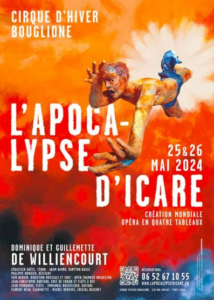Saturday, 23 August 2008
It’s a tiny book, only 116 pages long, but it contains a monumental truth, another sign that one and a half million dead Armenians will not go away. It’s called My Grandmother: a Memoir and it’s written by Fethiye Cetin and it opens up graves. For when she was growing up in the Turkish town of Marden, Fethiye’s grandmother Seher was known as a respected Muslim housewife. It wasn’t true. She was a Christian Armenian and her real name was Heranus. We all know that the modern Turkish state will not acknowledge the 1915 Armenian Holocaust, but this humble book may help to change that. Because an estimated two million Turks – alive in Turkey today – had an Armenian grandparent.
As children they were put on the death marches south to the Syrian desert but – kidnapped by brigands, sheltered by brave Muslim villagers (whose own courage also, of course, cannot be acknowledged by Turkey) or simply torn from their dying mothers – later became citizens of the modern Turkey which Mustafa Kemal Ataturk was to set up. Yet as Maureen Freely states in her excellent preface, four generations of Turkish schoolchildren simply do not know Ottoman Anatolia was between a quarter and a half Christian.
Heranus – whose face stares out at the reader from beneath her Muslim headscarf – was seized by a Turkish gendarme, who sped off on horseback after lashing her mother with a whip. Even when she died of old age, Fethiye tried to record the names of Heranus’s Armenian parents – Isguhi and Hovannes – but was ignored by the mosque authorities. It was Heranus, with her razor-sharp memory, who taught Fethiye of her family’s fate and this book does record in terrible detail the now familiar saga of mass cruelty, of rape and butchery.
In one town, the Turkish police separated husbands, sons and old men from their families and locked the women and children into a courtyard with high walls. From outside came blood-curdling shrieks. As Fethiye records, « Heranus and her brothers clung to their mother’s skirts, but though she was terrified, she was desperate to know what was going on. Seeing that another girl had climbed on to someone’s shoulders to see over the wall, she went to her side. The girl was still looking over the wall; when, after a very long while, she came down again, she said what she had seen. All her life, Heranus would never forget what came from this girl’s lip: ‘They’re cutting the men’s throats, and throwing them into the river.' »
Fethiye says she wrote her grandmother’s story to « reconcile us with our history; but also to reconcile us with ourselves » which, as Freely writes, cuts right through the bitter politics of genocide recognition and denial. Of course, Ataturk’s decision to move from Arabic to Latin script also means that vital Ottoman documents recalling the genocide cannot be consulted by most modern-day Turks. At about the same time, it’s interesting to note, Stalin was performing a similarly cultural murder in Tajikistan where he moved the largely Persian language from Arabic to Cyrillic.
And so history faded away. And I am indebted to Cosette Avakian, who sent me Fethiye’s book and who is herself the granddaughter of Armenian survivors and who brings me news of another memorial of Armenians, this time in Wales. Wales, you may ask? And when I add that this particular memorial – a handsome Armenian cross embedded in stone – was vandalised on Holocaust Memorial Day last January, you may also be amazed. And I’m not surprised because not a single national paper reported this outrage. Had it been a Jewish Holocaust memorial stone that was desecrated, it would – quite rightly – have been recorded in our national newspapers. But Armenians don’t count.
As a Welsh Armenian said on the day, « This is our holiest shrine. Our grandparents who perished in the genocide do not have marked graves. This is where we remember them. » No one knows who destroyed the stone: a request for condemnation by the Turkish embassy in London went, of course, unheeded, while in Liverpool on Holocaust Day, the Armenians were not even mentioned in the service.
Can this never end? Fethiye’s wonderful book may reopen the past, but it is a bleak moment to record that when the Turkish-Armenian journalist Hrant Dink was prosecuted for insulting « Turkishness », Fethiye defended him in court. Little good it did Dink. He was murdered in January last year, his alleged killer later posing arrogantly for a picture next to the two policemen who were supposed to be holding him prisoner. It was in Dink’s newspaper Agos that Fethiye was to publish her grandmother’s death notice. This was how Heranus’s Armenian sister in America came to read of her death. For Heranus’s mother survived the death marches to remarry and live in New York.
Wales, the United States, even Ethiopia, where Cosette Avakian’s family eventually settled, it seems that every nation in the world is home to the Armenians. But can Turkey ever be reconciled with its own Armenian community, which was Hrant Dink’s aim? When Fethiye found her Aunt Marge in the US – this was Heranus’ sister, of course, by her mother’s second marriage – she tried to remember a song that Heranus sang as a child. It began with the words « A sad shepherd on the mountain/Played a song of love… » and Marge eventually found two Armenian church choir members who could put the words together.
« My mother never missed the village dances, » Marge remembered. « She loved to dance. But after her ordeal, she never danced again. » And now even when the Welsh memorial stone that stands for her pain and sorrow was smashed, the British Government could not bring itself to comment. As a member of the Welsh Armenian community said at the time, « We shall repair the cross again and again, no matter how often it is desecrated. » And who, I wonder, will be wielding the hammer to smash it next time?
http://www.independent.co.uk/opinion/commentators/fisk/robert-fisks-world-a-voice-recovered-from-armenias-bitter-past-906480.html



